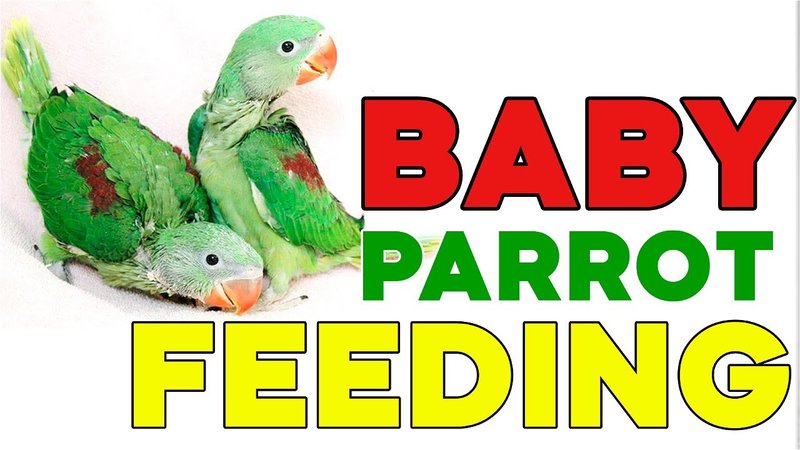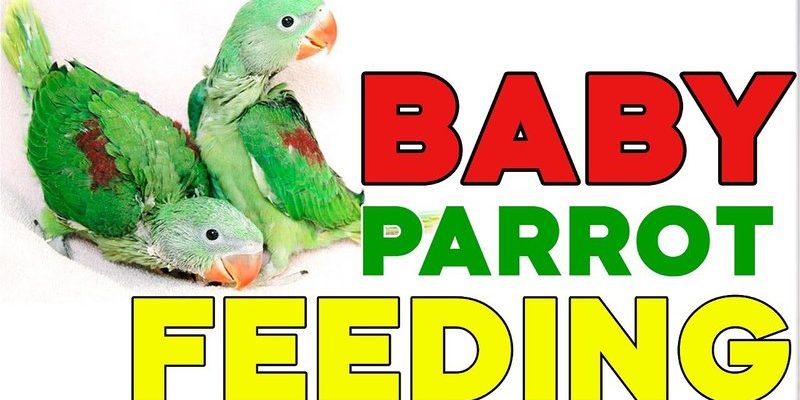
Imagine trying to keep a human happy without giving them the right food, a comfy home, or friends to talk to. That’s what it’s like for a parrot! In this guide, we’ll explore everything you need to know to create a loving environment for your feathered friend, focusing on how to properly feed them, ensure they have a healthy living space, and keep them socially engaged.
Understanding Parrot Diet: What to Feed Your Feathered Friend
Feeding your parrot is more than just tossing some seeds in a bowl and calling it a day. Parrots are herbivores by nature, meaning they thrive on a variety of fruits, vegetables, seeds, and nuts. A balanced diet is crucial for their health, much like how we need a mix of nutrients to stay well.
Here are some essential components of a parrot’s diet:
- Fruits and Vegetables: Fresh produce should make up a significant portion of your parrot’s meals. Think bell peppers, carrots, and apples. Just like we enjoy a colorful salad, parrots love variety. Aim for bright colors; they often signal different nutrients!
- Pellets: While seeds can be a fun treat, a base diet of pellets is recommended. These are formulated to provide the right nutrients in every bite. It’s like giving your parrot a multivitamin without the hassle!
- Nuts and Seeds: Offer these in moderation, as many are high in fat. Think of them as dessert—great for spoiling your parrot every now and then.
A good rule of thumb is to aim for about 80% pellets and fresh produce, and 20% seeds and nuts. You might be wondering how often to feed them—typically, fresh food can be given daily, while pellets should be available at all times. Just remember to clean up uneaten fruits and veggies after a few hours to avoid spoilage.
Creating a Comfortable Home: Housing Needs for Parrots
Now that you’ve got their meals sorted, let’s talk about where your parrot will live. A comfortable and stimulating environment is vital for their happiness. Parrots are naturally curious, so they need space to explore and perch.
When choosing a cage for your parrot, size matters. Here’s what to consider:
- Space: Ideally, the cage should be larger than you think. Parrots need room to spread their wings and move around comfortably. A cage that’s at least two feet wide is a good starting point, but bigger is always better.
- Bar Spacing: Ensure the space between bars is appropriate for their size. Too wide, and they might escape; too narrow, and they could get stuck. Generally, 1⁄2 to 3⁄4 inch spacing works for most medium-sized parrots.
- Materials: Go for non-toxic materials. Birds love to chew, so stay away from anything painted or treated with harmful chemicals.
It’s also important to place the cage in a lively area of your house. Remember, parrots are social creatures and love to interact with their humans. Ideally, their cage should be at eye level—a perch with a view of the family action!
Social Needs: The Importance of Interaction
Here’s the thing: parrots aren’t just pets—they’re companions. They thrive on social interaction, so you’ll need to dedicate time each day for play and bonding. Think of it as a commitment to a friendship; you wouldn’t ignore your buddy, right?
Daily socialization helps prevent loneliness and boredom, which can lead to behavioral issues. Here are some ways to keep your feathered friend engaged:
- Out-of-Cage Time: Let them explore outside their cage for a few hours each day. Set up a safe area with toys and perches, so they can stretch their wings and demonstrate their silly antics.
- Talking and Training: Parrots love to mimic sounds and words! Spend time teaching them new phrases. It’s not just fun; it strengthens your bond and keeps their mind sharp. Think of it as a little game of words!
- Toys and Enrichment: Provide a variety of toys that promote chewing, climbing, and foraging. Rotate their toys regularly to keep things fresh and exciting. They’ll appreciate the constant new challenges!
Remember, a bored parrot can become a noisy or destructive parrot, so keeping their minds active is just as important as feeding them well.
Health and Wellness: Regular Vet Check-ups
Your parrot’s health checks are as important as daily feeding and social interaction. Just like any other pet, they need regular vet visits to catch any potential health issues early. Finding an avian vet can feel daunting, but it’s key to ensuring your parrot stays healthy.
Here are a few things to keep in mind regarding their health:
- Signs of Illness: Pay attention to any changes in behavior, appetite, or droppings. If your usually chatty parrot suddenly goes quiet, it’s worth investigating.
- Regular Check-ups: Schedule yearly vet visits. These check-ups are essential for vaccinations and overall well-being.
- Beak and Nail Care: Keep an eye on your parrot’s beak and nails. Grooming may be necessary if they don’t wear them down naturally. Your vet can guide you on clipping nails and beak health.
Establishing a good relationship with an avian vet can help ease any worries you might have. It’s like having a trusted doctor for your feathery friend!
Common Challenges in Parrot Care and How to Overcome Them
Even with the best intentions, you might face some challenges when caring for a parrot. It’s all part of the journey! Understanding these common issues can help you navigate them successfully.
Here are a few hurdles new parrot owners often encounter:
- Noisy Behavior: Parrots can be loud! If your parrot’s squawking becomes a problem, consider their environment. Are they bored? Adding more toys or engaging with them regularly might help quiet their chatter.
- Destructive Chewing: Birds love to chew! While it’s a natural behavior, it can lead to destruction. Provide safe chew toys to give them an outlet. Just think of it as a healthy hobby for your parrot.
- Behavioral Issues: If your parrot starts showing signs of aggression or biting, it can be daunting. Patience is key here. Gradually work on trust-building exercises and handle them gently to earn their confidence back.
Remember, every parrot has its unique personality. What works for one might not work for another, so be observant and flexible in your approach.
Wrapping It Up: Your Commitment to Parrot Care
Caring for a parrot is a rewarding adventure that comes with its own set of challenges. By focusing on feeding, housing, and social interaction, you’re laying the foundation for a happy life for your feathered friend. It’s a commitment that requires time and effort, but the companionship of a parrot makes every bit of it worth it.
As you embrace the joys of parrot care, remember to be patient and adaptable. You’re not just a caretaker; you’re building a lifelong friendship. So take a deep breath, enjoy the journey, and give your parrot the loving home they deserve!

